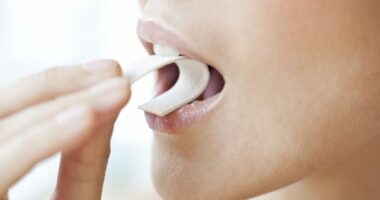Share this @internewscast.com
Parents are being advised to reassess the contents of their baby’s cot amidst renewed warnings from safety organizations about items that could compromise safe sleep. As families strive to keep bedrooms warm during the lingering winter months, many are tempted to add extra soft items to create a cozy environment for their little ones.
However, UK safety guidelines emphasize the importance of maintaining a minimalist approach when it comes to a baby’s cot. According to the NHS, cot bumpers should be avoided due to their potential hazards, including choking, suffocation, and strangulation. Although marketed as a protective measure to prevent babies from hitting their heads on the cot’s sides, the danger arises when infants begin to wiggle, roll, or pull themselves up.
The Lullaby Trust underscores the significant risks posed by cot bumpers. They highlight incidents where babies have become entangled in the bumper ties or material, or have pulled themselves up, leading to accidents. The NHS further advises that a cot should be free from toys and any items that could obstruct a baby’s breathing or cause overheating, reinforcing the recommendation against using bumpers, pillows, and loose bedding.
The Child Accident Prevention Trust also issues a stark warning, highlighting that young children are particularly vulnerable to suffocation as they cannot easily escape danger. Asphyxia, which includes choking and strangulation, stands as the third leading cause of accidental deaths among children in the UK, with the majority of these tragic incidents occurring in children under five.
Experts in child essentials, such as those at For Your Little One, advocate for treating the cot solely as a sleep space rather than a storage area, recommending adherence to the basics each night.
A spokesperson from the organization stated, “While it’s tempting to purchase comforting add-ons, the cot should remain uncluttered. Babies require only a firm, flat mattress, a tight-fitting sheet, and appropriate sleep clothing for the room’s temperature. Additional items can shift during sleep, posing unnecessary risks.”
*** Ensure our latest news headlines always appear at the top of your Google Search by making us a Preferred Source. Click here to activate or add us as Preferred Source in your Google search settings. ***
The Lullaby Trust backs the same principle, saying the safest cot is a clear one and families should keep the cot free of unnecessary items.
For Your Little One suggests a quick routine many households can manage: Remove cot bumpers, pillows, duvets, loose blankets and soft toys from the cot; check the mattress is firm, flat and fits the cot properly, with a tight-fitting sheet only; keep baby’s head uncovered and avoid hats indoors during sleep; and use a well-fitting baby sleep bag if needed, rather than loose bedding.
They also advise parents to look out for ties, cords or anything that could wrap around a baby. If a product has straps or long ties, it should not be anywhere near a sleeping baby.











